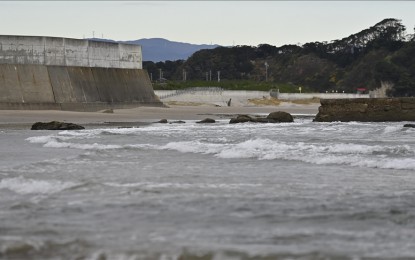
(Anadolu)
ISTANBUL – The Japanese government issued a stern warning Tuesday to the Tokyo Electric Power Co. (TEPCO) after a leak of contaminated water from the crippled Fukushima Daiichi nuclear power plant, according to media reports.
Economy, Trade, and Industry Minister Ken Saito stressed the importance of safety during the decommissioning process.
"Even a single mistake could result in a loss of trust from the local community and society,” Saito said as quoted by Nikkei Asia.
The warning follows a Feb. 7 leak of 5.5 tons of water containing radioactive materials which was attributed to worker error.
TEPCO claims the leak posed no danger to workers or the environment, but doubts remain about the company’s ability to safely manage decommissioning.
That was after another safety violation last year where workers were exposed to radioactive waste in October, raising concerns about TEPCO's commitment to safe practices.
The Japanese government and TEPCO face ongoing challenges in balancing decommissioning efforts with environmental and public safety concerns.
Japan began releasing treated radioactive wastewater from the plant last August, triggering a strong reaction from China and opposition parties in South Korea and the Solomon Islands.
As the debate surrounding the water release continues, ensuring transparency and upholding strict safety protocols remain the top priorities.
Beijing banned seafood imports from Japan after Tokyo went ahead with its plans to release the water. The plant has more than 1 million tons of treated wastewater to release in a 30-year process.
Chinese Minister of Ecology and Environment Huang Runqiu stressed Tuesday the importance of Tokyo managing nuclear-contaminated wastewater “in a responsible manner" during a meeting with the Japanese Ambassador in Beijing, Kenji Kanasugi.
He urged Japan to collaborate in establishing a robust “international monitoring’’ system involving “neighboring countries and other stakeholders.’’
The Fukushima plant was forced to shut down after facing the largest nuclear accident since 1986 in Chernobyl following an earthquake and tsunami in 2011. (Anadolu)
